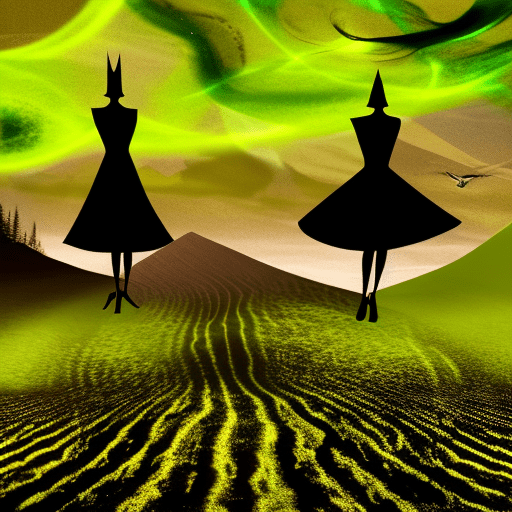Summary:
In “Wicked: The Life and Times of the Wicked Witch of the West,” author Gregory Maguire offers a unique and captivating twist on the classic tale of “The Wizard of Oz.” Set in the magical land of Oz, the story delves into the life and experiences of Elphaba, the misunderstood and green-skinned Wicked Witch of the West. Through a thought-provoking narrative, Maguire explores themes of good versus evil, the nature of power, and the complexities of morality.
Unveiling the Origins of the Wicked Witch:
“Wicked” takes readers on a journey through Elphaba’s life, from her birth to her eventual transformation into the infamous Wicked Witch of the West. Born with emerald-green skin, Elphaba is an outcast from the start. As she grows older, she becomes increasingly aware of the injustices and prejudices in Oz, particularly towards Animals, who possess human-like intelligence. Elphaba’s compassion for the oppressed drives her to join a revolutionary movement seeking to overthrow the corrupt Wizard of Oz and liberate the Animals.
The Complexities of Morality:
One of the central themes in “Wicked” is the exploration of morality and the blurred lines between good and evil. Maguire challenges the notion of absolute morality by presenting characters who are neither entirely good nor entirely evil. Elphaba, often seen as the villain in the original story, is portrayed as a complex and sympathetic character. Her actions, though sometimes questionable, are driven by a desire for justice and equality. This raises the question of whether one’s intentions can justify their means.
The Nature of Power:
Another prominent theme in “Wicked” is the nature of power and its corrupting influence. The Wizard of Oz, initially seen as a benevolent figure, is revealed to be a manipulative and power-hungry ruler. Through his propaganda and control over the Emerald City, he maintains a facade of goodness while suppressing dissent and exploiting the marginalized. The novel explores the corrupting effects of power and the lengths individuals will go to maintain their authority.
Key Takeaways:
- “Wicked” offers a fresh perspective on the classic tale of “The Wizard of Oz,” delving into the life and motivations of the Wicked Witch of the West.
- The novel challenges the notion of absolute morality, presenting complex characters who blur the lines between good and evil.
- It explores the corrupting influence of power and the lengths individuals will go to maintain their authority.
- “Wicked” raises thought-provoking questions about justice, equality, and the nature of oppression.
- The book reminds us that appearances can be deceiving and that understanding the motivations of others can lead to greater empathy and compassion.
“People who claim that they’re evil are usually no worse than the rest of us… It’s people who claim that they’re good, or any way better than the rest of us, that you have to be wary of.”
– Gregory Maguire, Wicked: The Life and Times of the Wicked Witch of the West
In “Wicked: The Life and Times of the Wicked Witch of the West,” Gregory Maguire invites readers to question their preconceived notions of good and evil. Through the captivating story of Elphaba, the misunderstood Wicked Witch of the West, the novel explores themes of morality, power, and the complexities of human nature. By challenging traditional narratives, “Wicked” encourages readers to consider the perspectives of those deemed villains and reminds us that true understanding requires looking beyond appearances.












